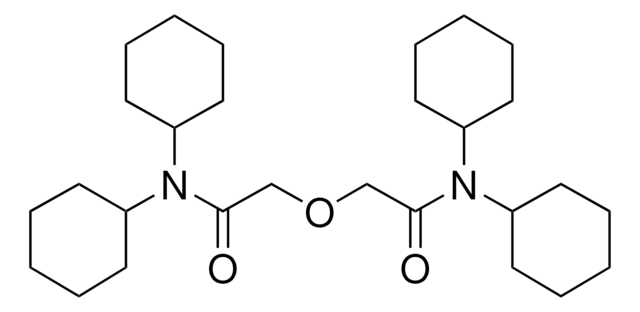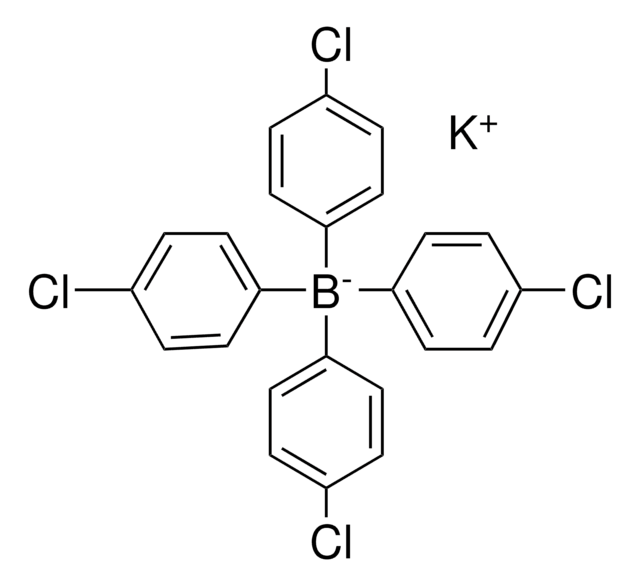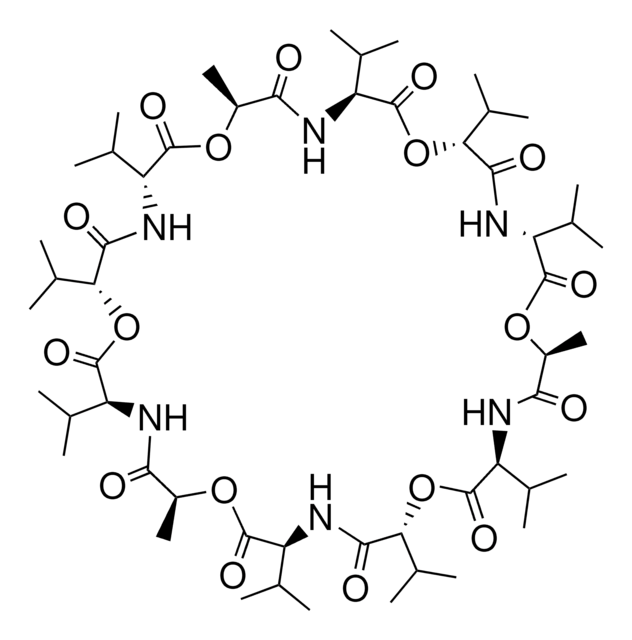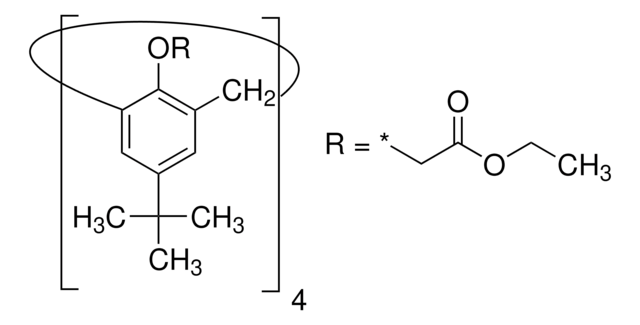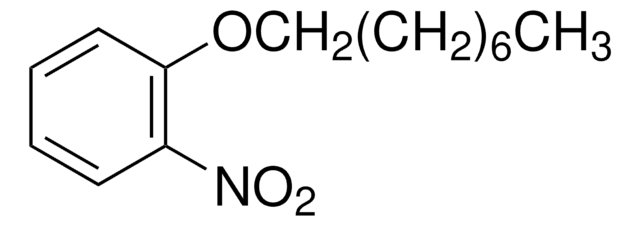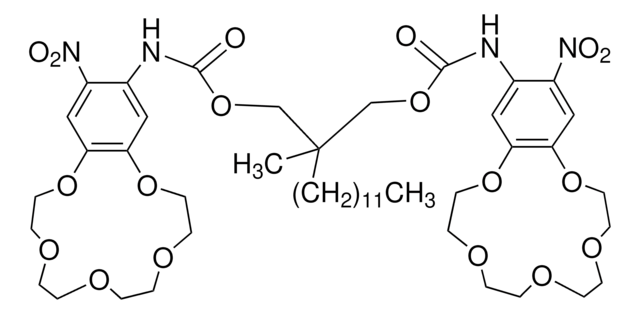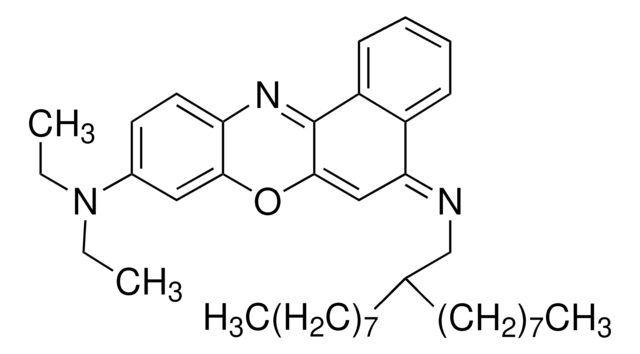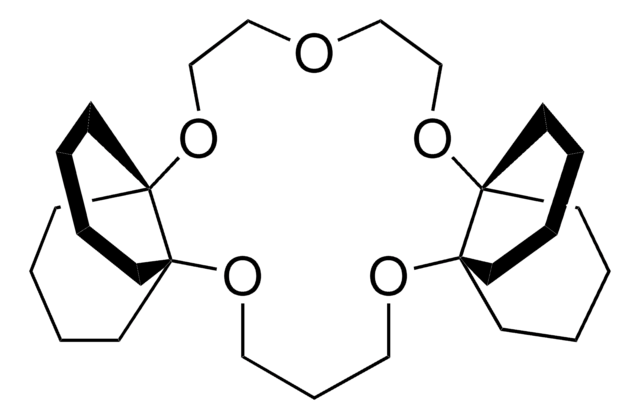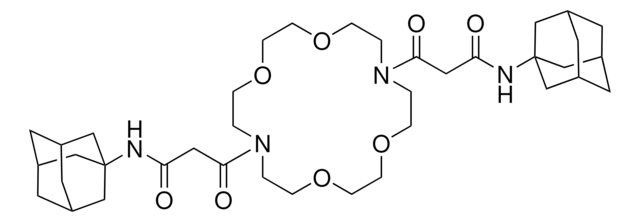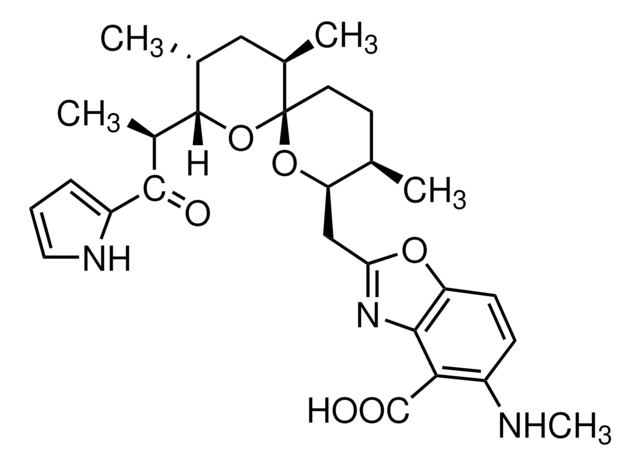21198
Calcium ionophore IV
Selectophore™, function tested
Synonym(s):
N,N-Dicyclohexyl-N′,N′-dioctadecyl-3-oxapentanediamide, N,N-Dicyclohexyl-N′,N′-dioctadecyl-diglycolic diamide, ETH 5234
About This Item
Recommended Products
grade
for ion-selective electrodes
Quality Level
product line
Selectophore™
quality
function tested
mp
50-53 °C
SMILES string
CCCCCCCCCCCCCCCCCCN(CCCCCCCCCCCCCCCCCC)C(=O)COCC(=O)N(C1CCCCC1)C2CCCCC2
InChI
1S/C52H100N2O3/c1-3-5-7-9-11-13-15-17-19-21-23-25-27-29-31-39-45-53(46-40-32-30-28-26-24-22-20-18-16-14-12-10-8-6-4-2)51(55)47-57-48-52(56)54(49-41-35-33-36-42-49)50-43-37-34-38-44-50/h49-50H,3-48H2,1-2H3
InChI key
CLLKVTAGSOWKHA-UHFFFAOYSA-N
Looking for similar products? Visit Product Comparison Guide
Related Categories
General description
Application
Packaging
Other Notes
Legal Information
related product
Storage Class
11 - Combustible Solids
wgk_germany
WGK 3
flash_point_f
Not applicable
flash_point_c
Not applicable
ppe
Eyeshields, Gloves, type N95 (US)
Choose from one of the most recent versions:
Certificates of Analysis (COA)
Don't see the Right Version?
If you require a particular version, you can look up a specific certificate by the Lot or Batch number.
Already Own This Product?
Find documentation for the products that you have recently purchased in the Document Library.
Customers Also Viewed
Our team of scientists has experience in all areas of research including Life Science, Material Science, Chemical Synthesis, Chromatography, Analytical and many others.
Contact Technical Service